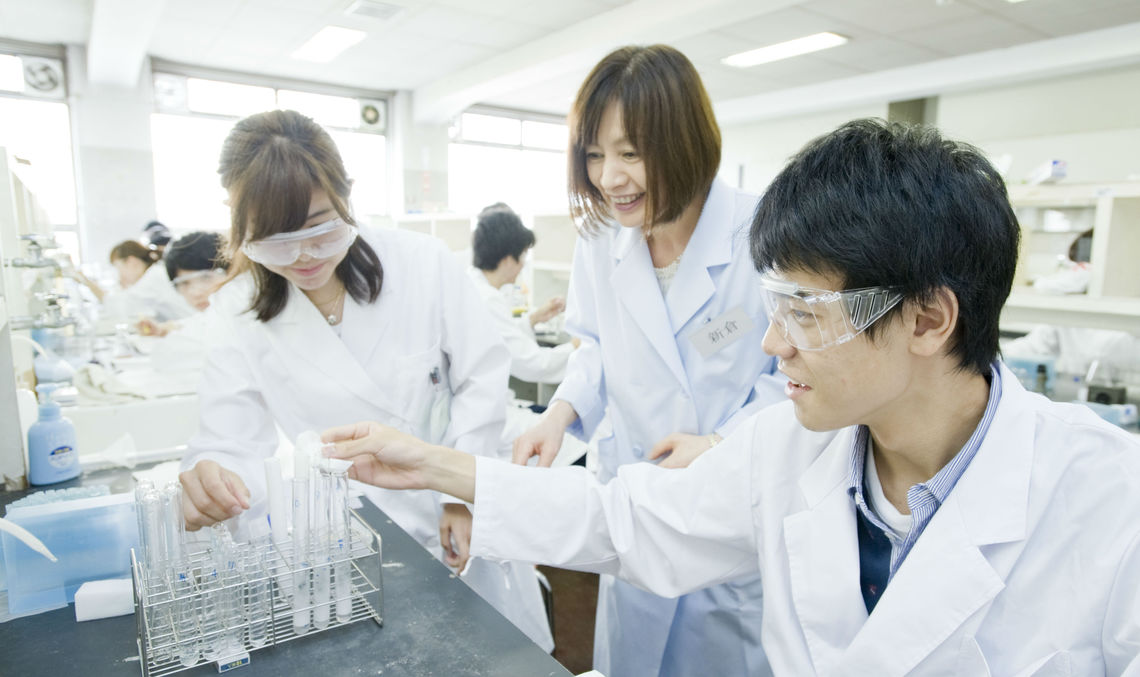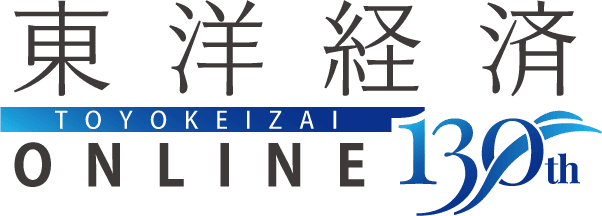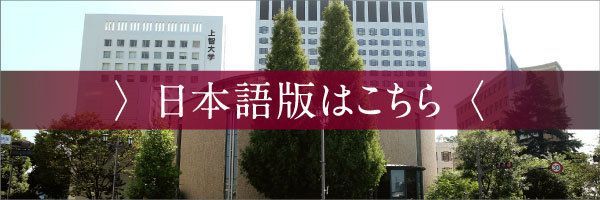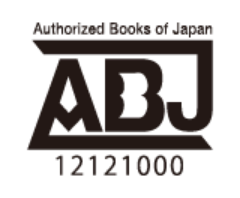Secret behind ongoing success of Sophia University’s Faculty of Science and Technology Undergraduate awarded at academic conference and another granted patent
According to Professor Tsukiji, in September 2016 the first five students graduated from the English-taught courses, three of whom moved on to Sophia University’s graduate programs and the other two to graduate programs at other universities. In addition, doctoral degrees were conferred for the first time to two students from Thailand and India. Master’s degrees were also obtained by two students from Ethiopia and Columbia after they completed the first half of their doctoral programs.
Close communication brings out the best in students
Along with its diverse student composition, small-group education is another unique feature of Sophia University. At the Faculty of Science and Technology, in particular, three to four students are taught by one teacher in graduate research, which means that the student-teacher ratio is one of the lowest among private universities in Japan. Students therefore find it easy to approach faculty members.
Compassionate and finely tuned teaching motivates students, leading to tangible outcomes, such as the acquisition of patents through lectures. In September 2016, Reo Katayama from the Department of Materials and Life Sciences was granted a patent for a “multi-purpose cutter knife specialized for cardboard box,” which he invented in the course of writing his report for the Faculty of Science and Technology General Subject Group Ⅱ named Intellectual Property Right. Compared with conventional utility knives, the product requires less effort to cut cardboard boxes, such as for recycling purposes. The patent was granted in recognition of its superior convenience and functionality. The Intellectual Property Right course is designed not only to allow students to learn about the systems and laws concerning intellectual property, but also to engage in problem solving and embody ideal technologies. Mr. Katayama was advised by the teacher to actually try cutting cardboard boxes, during which process he became aware of a new challenge he needed to overcome.

Sophia University’s educational system is drawing attention from the industrial community. In recent years, collaborations between industry and academia have been rapidly advancing. In autumn 2014, the Volvo Group, a world-class auto manufacturer, concluded an industry-academia partnership agreement with the university to run internship programs at the Group’s research facilities and plants within and outside Japan. Nissan Motor and Toyota Motor, among a wide range of other companies, are also funding research at Sophia to develop new technologies. Sophia University’s popularity among such global corporations worldwide testifies to the high regard in which they hold its professors and students.
The Faculty of Science and Technology will be celebrating its 55th anniversary in 2017. Sophians in science and technology are sure to continue their evolution to address the increasingly complex and diverse needs of society.
>>>For further information on Sophia University’s Faculty of Science and Technology





